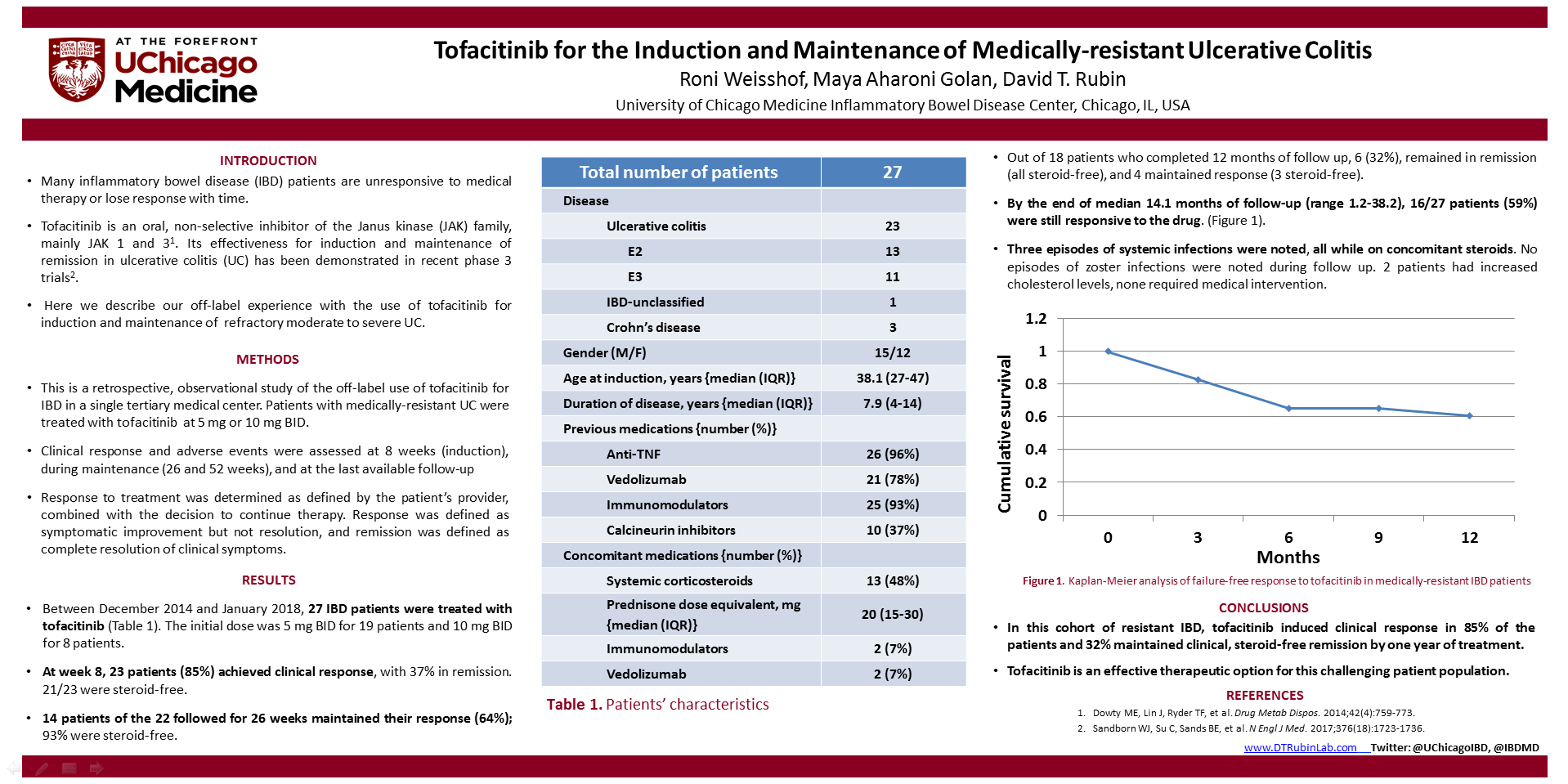Featured Conference Posters
Clinical trials of new and emerging therapies potentially offer the patient a more effective treatment. Much is happening in basic, translational and clinical research for IBD. Our clinicians interact closely with immunologists, microbiologists, geneticists, pathologists and other scientists at the University of Chicago who are working in the field of digestive diseases. Current studies are looking at the many genes associated with IBD and the role of intestinal microflora in contributing to the disorder. Whatever the area of research, we all have the same goals: to develop better and more specific treatments for IBD and ultimately to prevent and cure the disease
Using therapeutic drug monitoring to predict success of restarting infliximab therapy after a drug holiday in inflammatory bowel disease
Episodic exposure to infliximab (IFX) is associated with a high rate of infusion reactions and loss of response.
This study aimed to determine the success of restarting IFX for patients who were previously treated with IFX, but have been off IFX for ≥6 months, and were actively inflamed.
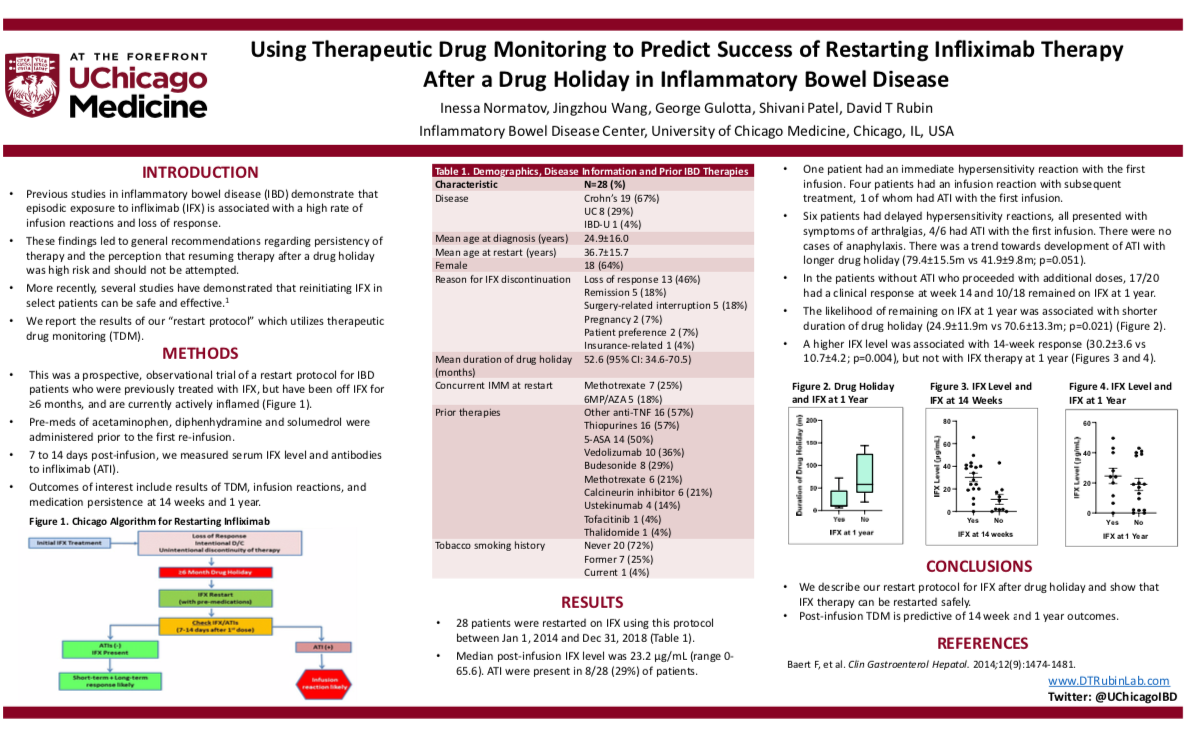
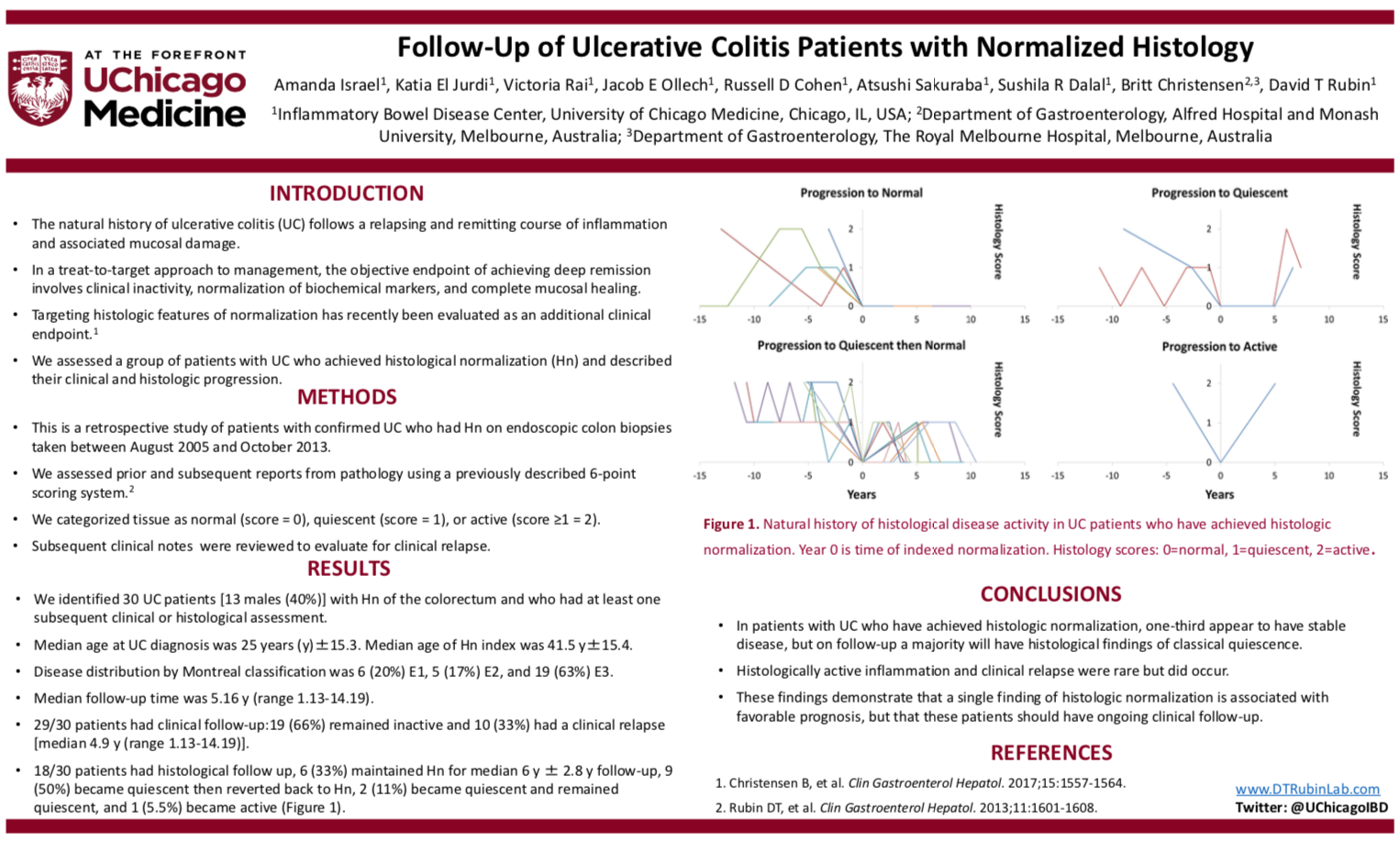
Follow-up of ulcerative colitis patients with normalized histology
Ulcerative colitis (UC) follows a relapsing and remitting course of inflammation and associated mucosal damage.
The aim of this study is describe the clinical and histological progression of a subset of patients with UC who achieved histological normalization (Hn).
Ustekinumab is effective for the treatment of chronic antibiotic-refractory pouchitis
Up to 15% of patients with ulcerative colitis (UC) who undergo proctocolectomy with ill-puch and anal anastomosis (IPAA) develop pouchitis refractory to antibiotics.
This study aims to investigate the effectiveness of ustekinumab in the treatment of chronic antibiotic-refractory pouchitis.
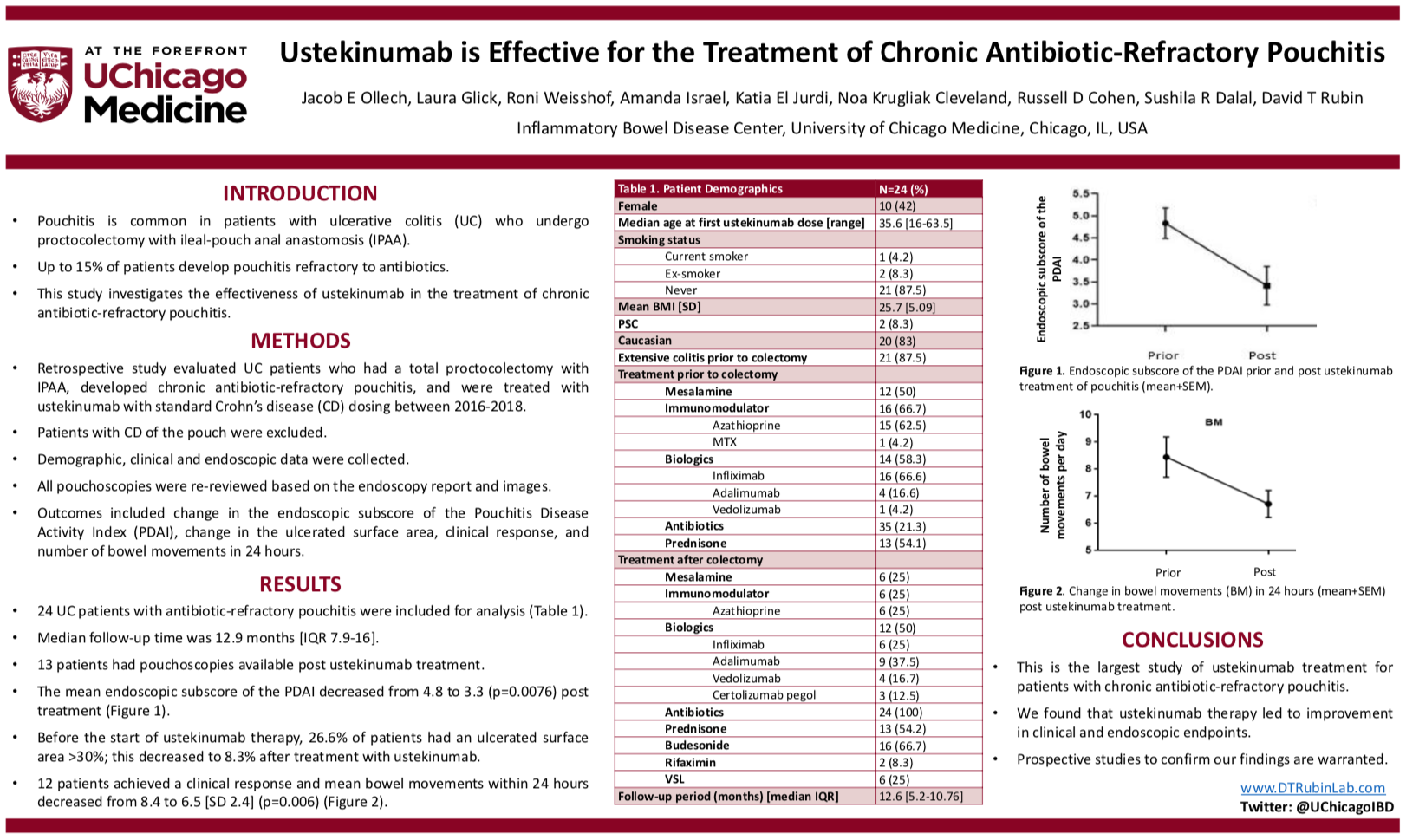
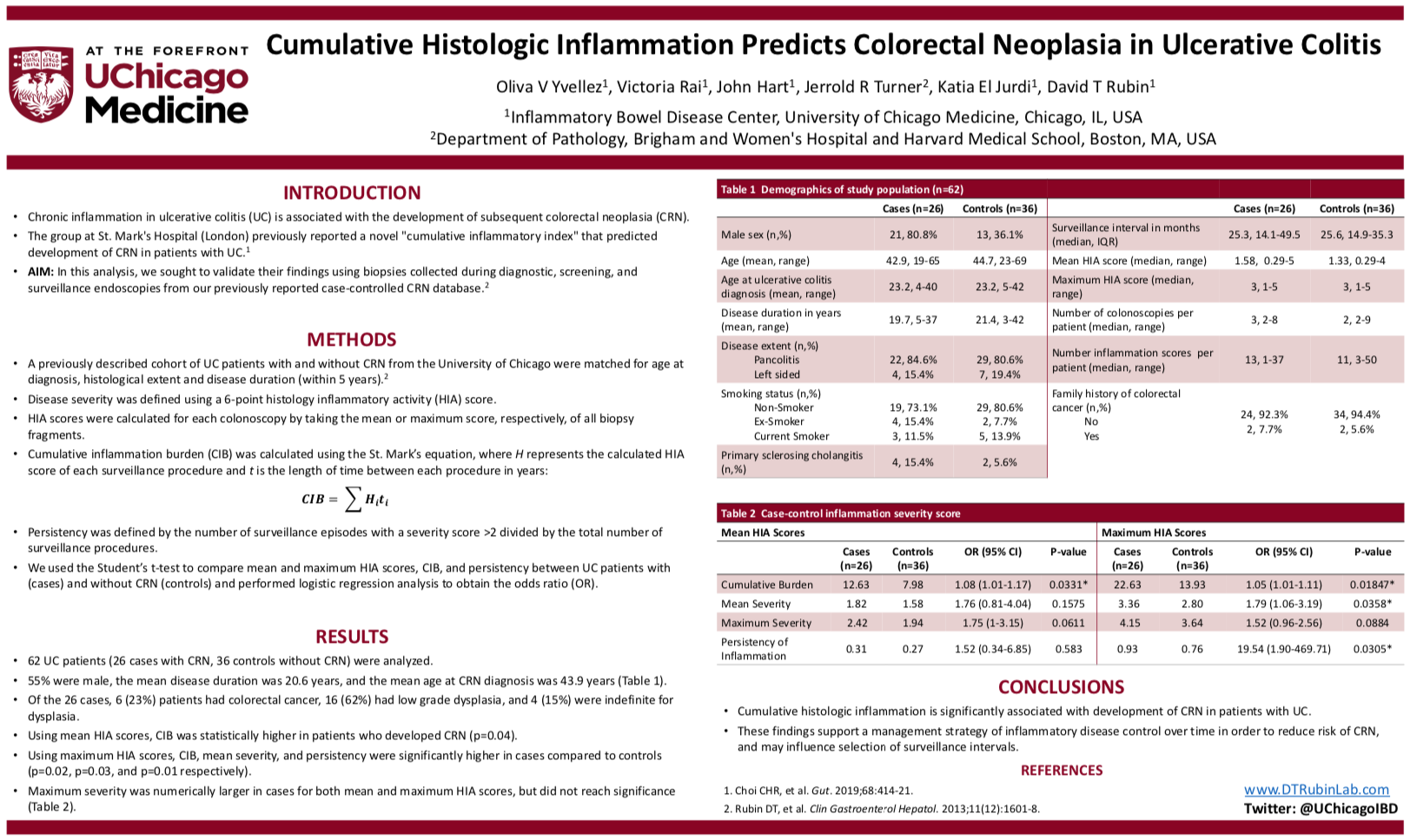
Cumulative histologic inflammation predicts colorectal neoplasia in ulcerative colitis
Chronic inflammation in ulcerative colitis (UC) is associated with the development of subsequent colorectal neoplasia (CRN).
Here we sought to validate their findings using biopsy collected during diagnostic, screening, and surveillance endoscopies from our previously reported case-controlled CRN database.
Tofacitinib for the Induction and Maintenance of Medically-resistant Ulcerative Colitis
Tofacitinib is an oral, non-selective inhibitor of the Janus kinase (JAK) family, mainly JAK 1 and 3. Its effectiveness for induction and maintenance of remission in ulcerative colitis (UC) has been demonstrated in recent phase 3 trials.
Here we describe our off-label experience with the use of tofacitinib for induction and maintenance of refractory moderate to severe UC.

